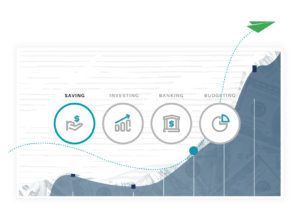Details Are Part of Our Difference
Embracing the Evidence at Anheuser-Busch – Mid 1980s
529 Best Practices
David Booth on How to Choose an Advisor
The One Minute Audio Clip You Need to Hear
Tag: compounding wisdom
The Greatest Double
This month we have one item we are sharing. It’s that important and that good. How do I know? At Hill Investment Group, we’ve been doing a series of morning Zoom calls for a few years now, and this piece from our own Charles Kafoglis is viewed as one of the best we’ve ever had. Charles won’t tell you this because he’s too humble, but his five-minute video is something everyone should see.
Why? It frames the magic of compounding in an easier way to digest and incorporate into your own life. Whether you are building towards financial independence or already there, I encourage you to watch our natural teacher, Charles Kafoglis, and his talk on “The Greatest Double.”
Summary of Topics:
- Example of doubling from one of Charles’s favorite teachers
- What it looks like to double every ten years
- Phases of life – learn, earn, adjourn
- The impact of the last double
- Do you have 3, 4, or more doubles?
Compounding Wisdom: 101 Saving

This is the latest in our series of introductory “101” financial guides. Each guide reveals a set of wise actions as well as a set of behaviors to avoid. The goal? Help you make smart choices at every turn in your financial road trip. Your financial success can be exponentially enhanced when you make wise financial decisions repeatedly over a long period. This month’s focus is Saving. You will increase your chances of financial security if you start saving early, contribute regularly, and live within your means. It all starts with having a savings plan.
Compounding Wisdom: Saving
Compound Wisdom Actions
- Set an Annual Savings Target – strive to save or invest at least 20% of your income each year.
- Be Intentional – your savings plan should establish priorities among retirement, education for kids, large purchases, and investments.
- Act Now – too often, we procrastinate due to loans or large purchases but remember that your most valuable dollar is the last one saved, and no amount is too small.
- Auto “Pay Yourself First” – enforce discipline using automated transfers from checking into savings and investments accounts.
- Prepare for Emergencies – don’t invest until you have sufficient liquid savings to pay for 3-6 months of living expenses.
- Plan for Large Purchases – define your next large purchase (what, when, and how much) and then save methodically each month.
- Keep Life Simple –avoid buying things that complicate your life and add unnecessary costs; more can be less.
- Save With Purpose – each dollar should be saved or invested with a purpose in mind so you can apply appropriate risk.
- Use Credit Wisely – remember that using credit means spending money today that you may not have yet earned.
- Zero the Balance – pay off all credit card balances each month; making a mid-month partial payment will likely raise your credit score.
Actions to Avoid:
- I Can’t Resist – Purchasing large items without a plan.
- C’est la vie – Living a lifestyle that prevents you from saving/investing 20% of your income.
- I’ll Start Next Year – Delaying savings due to lack of discipline or debt payments.
- That’s All I Had to Do – Only paying the minimums on credit card bills or other loans.
- Robbing Peter to Pay Paul – Using your checking account or credit card to fund emergencies or tapping your retirement accounts.
- But It’s an Emergency – Using your emergency fund for non-emergency spending.
- Scared Money Don’t Make Money – Don’t be risk averse when you are young; you are a time billionaire, so leverage it.
Feel free to pass this along if you know someone who might benefit from the guidance and look for more from me in this monthly series.
I lead our Hillfolio-level client service and planning efforts; learn more about me here and reach out if I can help you put the magic of compounding on your side.

